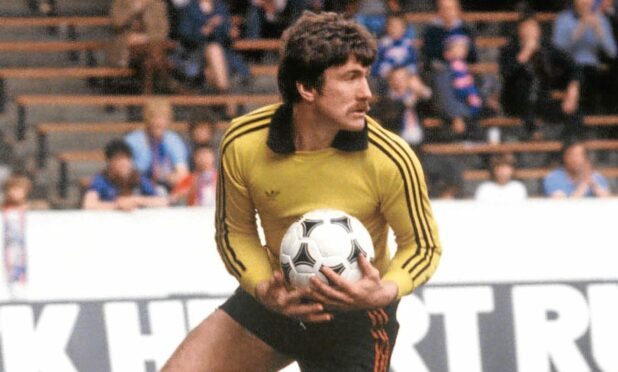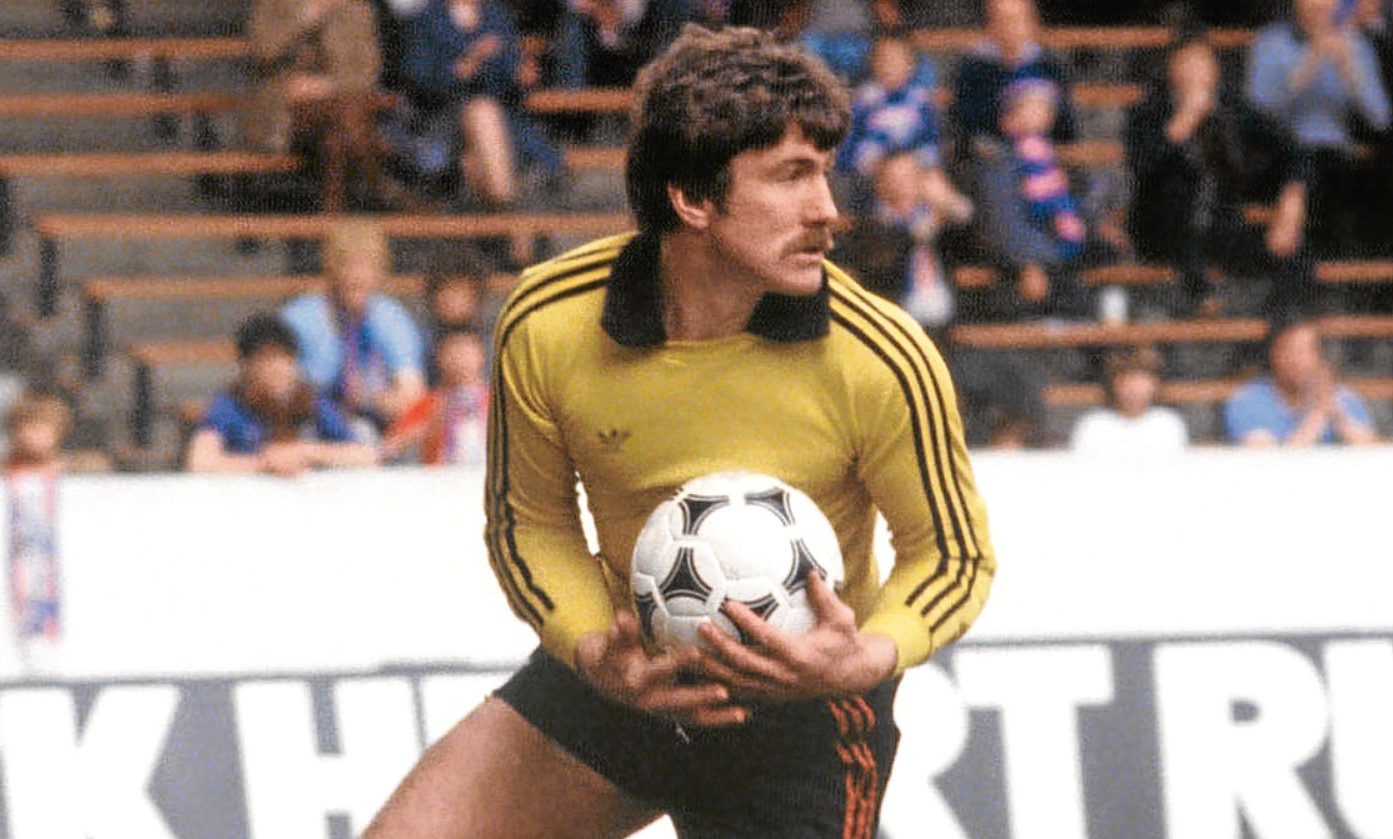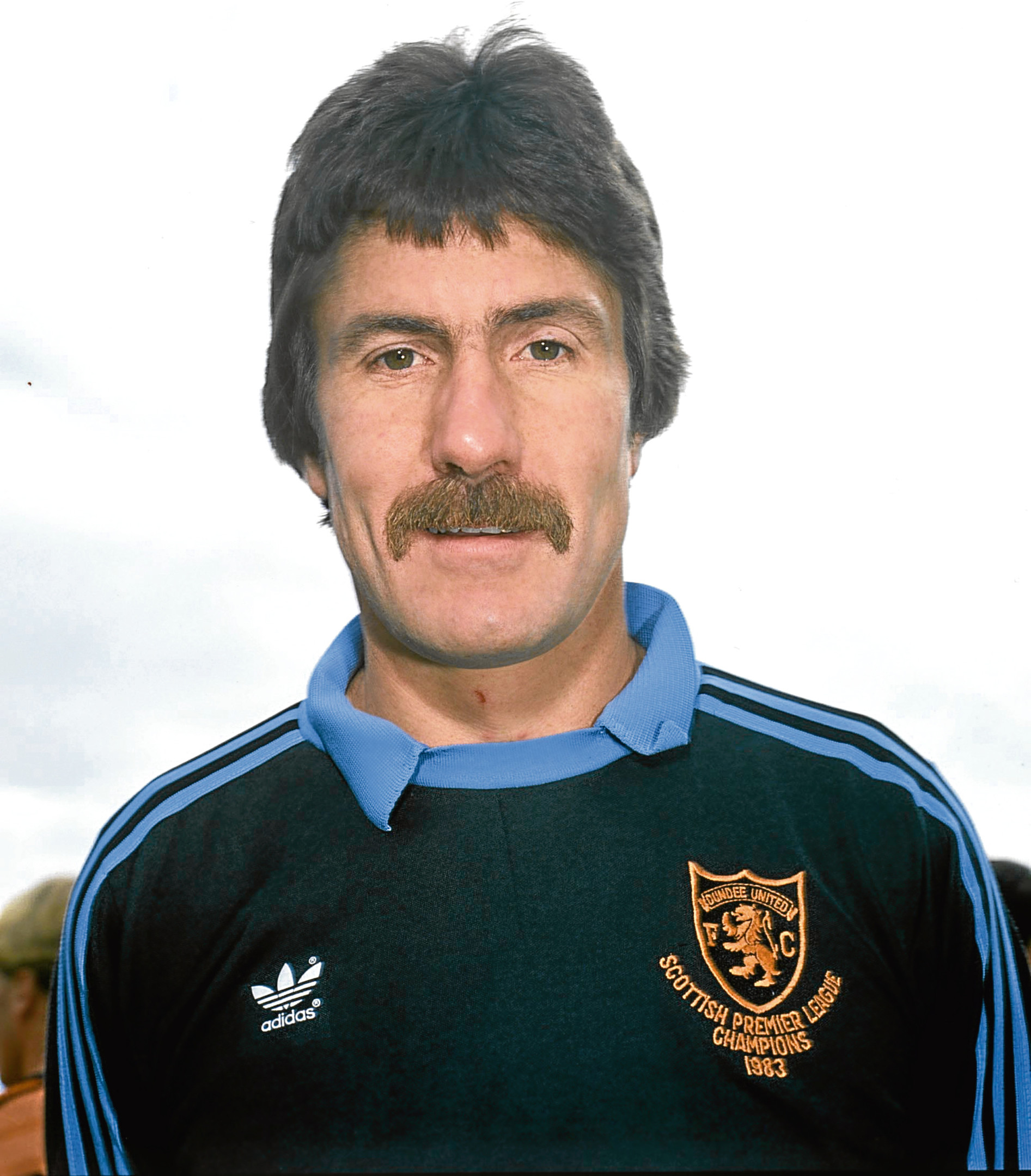If examination of the many fine goalkeepers who’ve played for the Dundee clubs spark debate over who’s been among the best, if the question of which was most flamboyant is raised there is surely only one answer.
Before or since in the City of Discovery, and probably much further afield, there’s never been a keeper like Hamish McAlpine, or, as his team-mates during 20 years at Dundee United would come to refer to him — “The Goalie”.
As virtually every player who played with or against him would testify, on a pitch there was nobody quite like him.
So much so, his long-time boss at Tannadice Jim McLean once remarked: “Hamish McAlpine was the one player who was able to destroy single-handedly everything I have ever thought or believed about the game of football.”
The pair had a tempestuous relationship and an argument over how many defenders should be put on the posts at corners even saw Hamish sent home from a tour to Japan in 1979 — and not by the shortest possible route.
Whatever friction there was between them, McLean knew his No 1 was one of the best around, which is why by the time he left Tannadice at the end of June 1986, he’d made a staggering 688 appearances.
In the process he won the Premier League, the League Cup twice and appeared in a European Cup semi-final.
All that was achieved, without a single training session with a specialised goalkeeping coach and to this day he admits to a degree of scepticism when it comes to that side of the game.
“When I started at United, Don Mackay was the first choice, then there was Sandy Davie and me,” Hamish recalled.
“Basically we just used to batter a ball at each other, sometimes standing in a triangle — but that was about as technical as it got.
“If anything, I preferred doing the same training as the other boys because the goalie stuff was hard. You were diving about for hours and you really felt it afterwards.”
As is hinted by those words, he did enjoyed playing outfield but he points out claims over how useful he was have maybe been exaggerated down the years.
“I was OK but I wasn’t nearly as good a player as I thought I was.
“That’s one of the reasons I became a goalkeeper.”
The main one, though, was he was better than anyone else and he became part of a team made up mainly of childhood friends.
“We were hopeless and no one wanted to go in goal, so we said everyone would take a turn and once you’d conceded two goals we’d change. I think we were about 14-0 down in a game and I went in and only conceded one in the last 20 minutes.
“Then I moved to school in Invergowrie and they put me in goal and that was really it.”
The rest is pretty much history and for all the big games in which he played, when Hamish looks back, what he recalls most fondly is the enjoyment he got. That’s why he never asked to leave United and only moved once his place had been taken by Billy Thomson on a permanent basis.
“I never really thought about going anywhere else. For me I was doing what I enjoyed and just took things from season to season.
“And, for all the money players can make now, I look back and wouldn’t swap when I played. We played for the love of the game. I look at the skill factor now and it is impressive, but it was a stronger, more physical game during my time and I loved it.”
TOMORROW . . . Dundee’s Julian Speroni and Rab Douglas.


